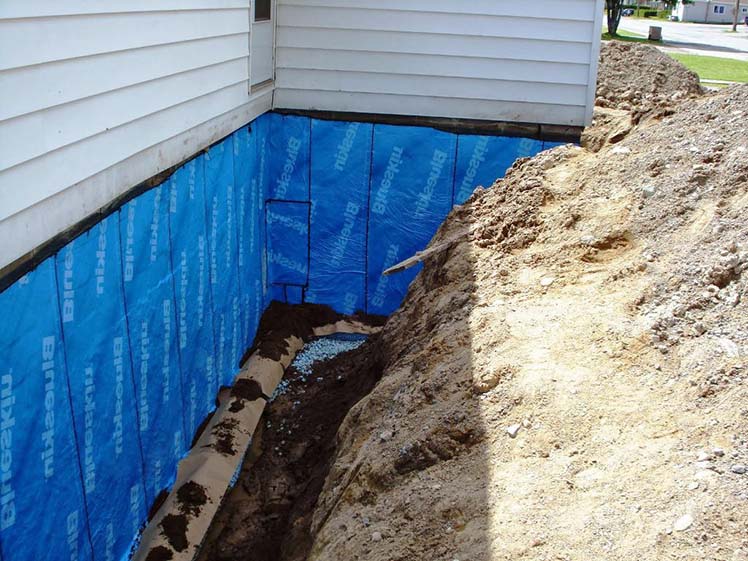Do you have a wet basement? Is water leaking from your concrete walls or pooling on your floor? Is moisture

Home » Basement Waterproofing » Types of waterproofing membranes

Unless your house or building was constructed in the past 10 years chances are you do not have an adequate basement waterproofing installation. At the time Toronto heritage houses were build a layer of tar was the only waterproofing material they had. A lot of new constructions use just “damp proofing” as the building code for new residential requires minimal preparation for the building’s foundation.
In the past 10 there has been a rapid development in basement waterproofing technology with many new options of basement waterproofing membranes and other materials.
Usually there is a combination of reasons that may lead to a leaky or wet basement. Poor drainage of accumulated water at the foundation walls , cracks and holes that have already occurred, concrete erosion and soil grading issues. Manufacturing of waterproofing has advanced to the point that a new waterproofing system installation can last almost a lifetime.
Some of the most common waterproofing membranes are:
Made from a petroleum-based asphalt material and used as an exterior membrane. Used in waterproofing and roofing, it is extremely resistant to water and moisture. It can be torch applied or a self-adhesive membrane and can be used on foundation walls and roofs.
SBS is a self-adhesive composite membrane consisting of an SBS rubberized asphalt compound which is laminated to a high-density polyethylene film. It is one of the most popular membranes used in basement waterproofing as it is a high-performance waterproofing barrier. The membrane is very flexible at low temperatures, prevents lateral water movement and has CCMC approval.
Usually used in the interior, liquid waterproofing has an easy application and is low in odour. You can apply it with a paint brush or spray gun and offers the best coverage when it comes to membranes. Some of the benefits are that it is easy to apply, provides a seamless solution as it cures into one solid membrane and has the flexibility to expand and contrast, adapting to temperature fluctuations and structural movements.
A membrane that can last for decades, highly waterproofing and can be applied by roller and paintbrush. It is water resistant and it is recommended for exterior waterproofing. It provides outstanding adhesion and reduces crack transmissions. It is also not affected by extreme temperatures.
This waterproofing system is a liquid that is applied to the interior basement walls. The solution applied penetrates the concrete walls and creates crystals that feel hairline cracks and capillaries in the concrete, a chemical reaction happens when the liquid touches the concrete and interacts with the lime that creates a moisture blocking seal.
One of our Toronto basement waterproofing experts can give you more information on which waterproofing solution is better for your basement waterproofing project. Call us today: 416-836-5253
Book your free on-site inspection and consultation with one of our basement waterproofing experts.
Do you have a wet basement? Is water leaking from your concrete walls or pooling on your floor? Is moisture
When it comes to waterproofing your basement you have two choices, interior or exterior waterproofing. Exterior basement waterproofing is the
Have you noticed standing water in your yard? Do you have water appearing on your concrete basement floor? Saturation of